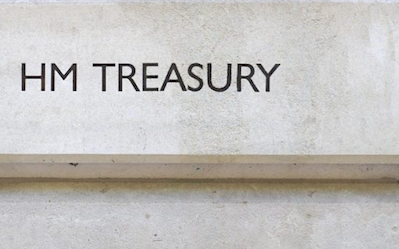The outgoing head of the UK’s Debt Management Office (DMO) has warned that Westminster politicians should be wary of provoking a backlash in financial markets by increasing borrowing too quickly ahead of a UK general election expected this year.
In an interview with London newspaper The Financial Times, Robert Stheeman warned that the job of selling UK government bonds is getting harder and investors might increasingly act as a restraining influence on UK fiscal policy.
The report said Stheeman has overseen an eight-fold rise in the UK’s debt over his 21 years as the UK government’s borrowing chief.
Since Stheeman joined the Debt Management Office, the UK’s debt has grown from about £350 billion to £2.7 trillion, the report said.
The Debt Management Office plans to sell £237 billion of UK government debt securities (gilts) this financial year, far above the £26 billion during his first year in office.
“Don’t kid yourself in thinking that you can develop policy in a vacuum without taking the market into account,” Stheeman told the Financial Times, a comment on ex-prime minister Liz Truss’s calamitous “mini” Budget of September 2022 which sent the gilt market into meltdown.
“In a world where we have debt to sell, policymaking cannot be divorced from the reality of the market.”
Stheeman told the newspaper that investors’ increasing sensitivity to the scale of UK government borrowing had been highlighted by the crisis in gilt markets that followed Truss’s much-derided plans for £45 billion of unfunded tax cuts.
Her chancellor Kwasi Kwarteng initially tried to shrug off the reaction from investors, saying “markets will react as they will” and has since claimed he was a “victim” of irrational bond markets.
But Stheeman said: “Markets are very human things, don’t rail against the market because all you are doing is railing against other people’s opinions …
“The market brings a harsh spotlight at times . . . it was asserting a very, very clear view about what it thought.”
Stheeman played down the “cliché” of investors as bond vigilantes calling the shots over government policy, saying that most of the time, the pricing in a market such as gilts simply reflects the investor expectations for the future path of interest rates.
However, he said that assumption breaks down when the “credibility” of fiscal policy is called into question.
The growth of government borrowing in the UK and elsewhere has led to a “greater focus” on that credibility, he said.
The newspaper said that despite the UK government’s historically high borrowing requirements and the UK central bank’s plans to step up sales of the gilts it bought under its quantitative easing programme to £100 billion this year, Stheeman said he is not worried about a lack of demand for buying the UK debt securities.
“The fact yields have not risen in an uncontrollable fashion over the past couple of years tells you it’s not just me that isn’t worried — the market isn’t particularly worried either,” he said.
“I am confident enough in the resilience and good function of the gilt market not to have a worry.”
